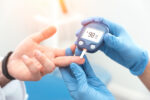Dosing Begins in Phase 2 Trial of AL001 in ALS With C9orf72 Mutations
Written by |

A first patient has been dosed in a Phase 2 clinical trial testing Alector’s investigational antibody AL001 as a treatment for amyotrophic lateral sclerosis (ALS) associated with C9orf72 mutations.
The trial is expected to enroll an estimated 45 ALS patients, who will be randomly assigned to AL001 or a placebo, given every four weeks for 24 weeks (about six months) as an infusion directly into the bloodstream, the company reported in a press release. AL001 will be an add-on to participants’ standard ALS treatments.
Main study goals are to assess the safety and tolerability of AL001, as well as its pharmacokinetics (how the therapy is distributed and absorbed in the body) and pharmacodynamics (its effects on the body).
Researchers will also look for changes in progranulin levels and other biomarkers in the blood and cerebrospinal fluid (CSF), the clear liquid that surrounds the brain and spinal cord.
“We look forward to exploring the potential of AL001 to improve outcomes for ALS patients,” said Sam Jackson, MD, interim chief medical officer at Alector.
Certain neurodegenerative disorders, such as ALS and frontotemporal dementia (FTD), are associated with the abnormal buildup of TDP-43 protein clumps, which contribute to the death of nerve cells.
It is estimated that about 95% of ALS patients and half of FTD patients have these protein aggregates. While in some cases they are caused by mutations in the gene coding for TDP-43 (known as the TARDBP gene), other patients have no known genetic cause associated with these protein clumps.
Recent research indicates that lower levels of the progranulin protein and mutations in C9orf72, another ALS-related gene, are linked with the formation of abnormal TDP-43 protein clumps. Raising progranulin levels was found in early studies to eliminate these clumps, and to prevent the formation of additional toxic protein aggregates, the company reported.
AL001 is a human monoclonal antibody designed to increase progranulin levels in people with neurogenerative diseases by blocking a receptor involved in its degradation.
“TDP-43 accumulation is found in the majority of patients with ALS, and by elevating progranulin levels, it is hoped that AL001 may have a neuroprotective effect,” said Katharine Nicholson, MD, a neurologist at the Sean M. Healey & AMG Center for ALS at Massachusetts General Hospital, and the Phase 2 study’s principal investigator.
“I look forward to working with Alector to study AL001’s disease-modifying potential in ALS,” Nicholson added.
Alector is also investigating AL001 as a treatment for FTD patients with progranulin or C9orf72 mutations. Two trials are ongoing and recruiting participants — the INFRONT-2 Phase 2 trial (NCT03987295) for patients with progranulin or C9orf72 mutations and the pivotal INFRONT-3 Phase 3 trial (NCT04374136) for those with progranulin mutations only.
“Frontotemporal dementia and amyotrophic lateral sclerosis share common clinical, pathological and genetic features and it is now recognized that FTD and ALS are two diseases that form a broad neurodegenerative continuum,” Jackson said.
“AL001 has shown encouraging results in patients with [FTD and progranulin mutations], rapidly increasing progranulin levels and normalizing inflammatory biomarkers along the disease cascade that contribute to neurodegeneration,” he added. “We are optimistic that … we may be able to mitigate or halt the downstream damage caused to motor neurons by excess TDP-43, and thereby slow the progression of ALS.”
AL001 and AL101 (a similar antibody for Parkinson’s and Alzheimer’s disease) are currently being developed in collaboration with GlaxoSmithKline.






